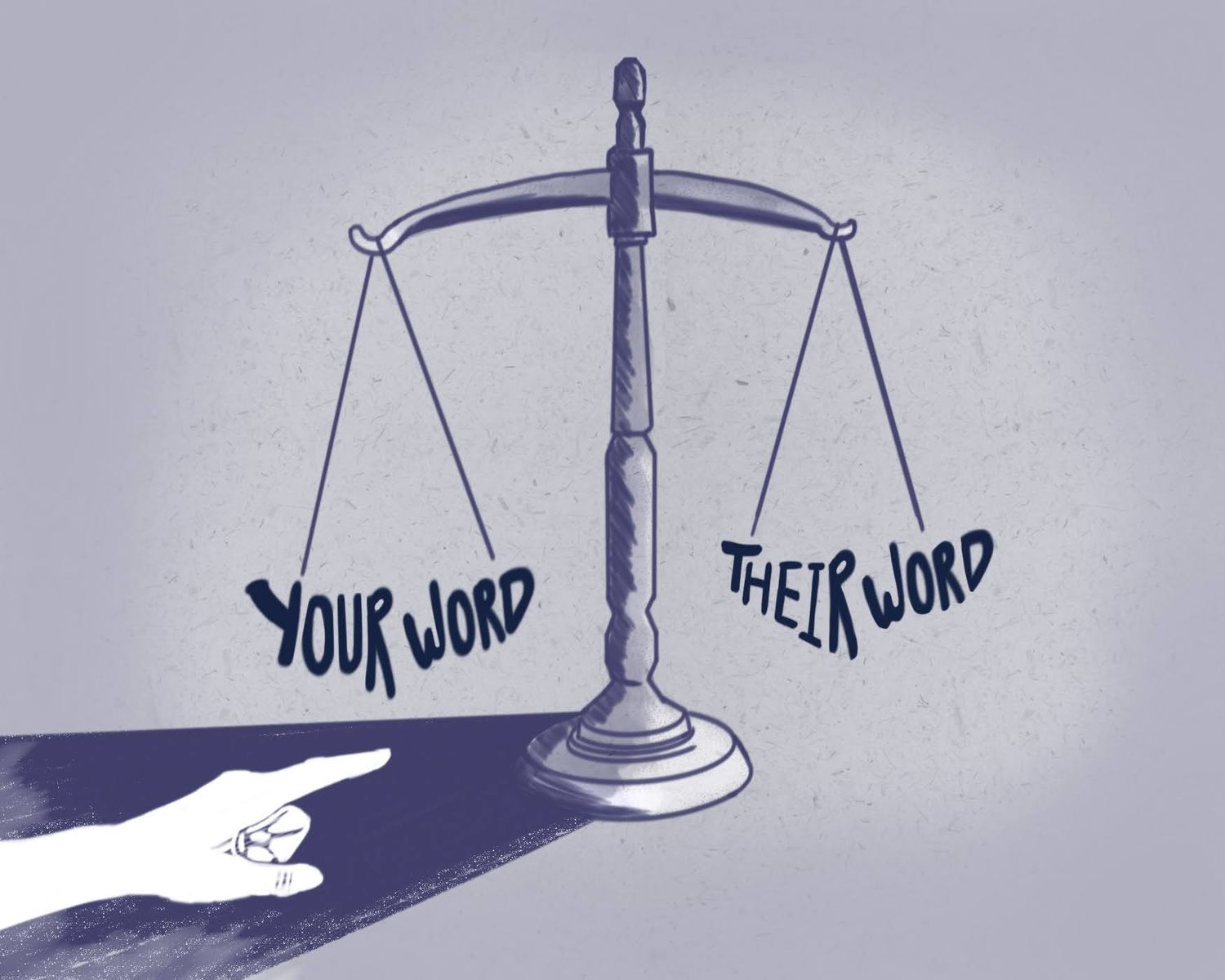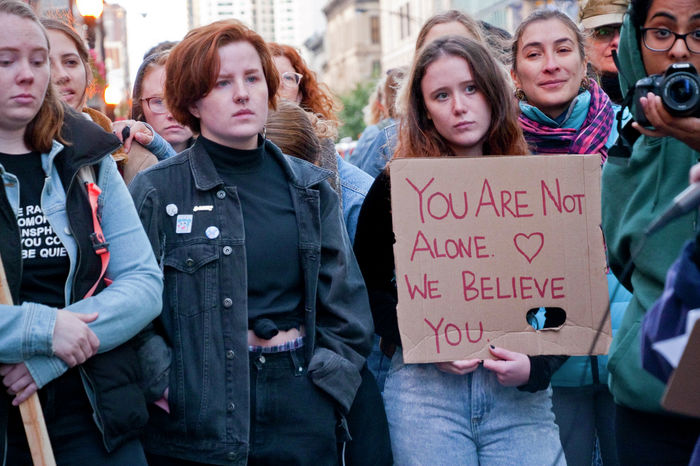Content note: this article contains discussion of sexual assault
When I first set out to report my sexual assault, I was optimistic about it. I’d spent a few weeks processing what had happened, talking to friends I trusted, and researching my options. The perpetrator knew he had done something wrong and I had text messages from him which, although not full confessions, were pretty damning evidence.
I’d decided I was going to report what had happened to me via my college. My perpetrator and I went to the same college, and the incident took place in my accommodation. I had a decent relationship with the college nurse, and I trusted her to give me good advice; I was only two terms into university, and I felt my college really had my best interests at heart.
Even at the earliest stages, I noticed that my college’s systems were somewhat lacking. The policies on College’s disciplinary procedures had not been updated for three years, some sections completely missing. I brought it up to the nurse, and she made some joke about no one having ever actually read the policy. That was my first red flag. I ignored it.
My first proper step was emailing the college’s Senior Tutor to explain what had happened and set up a meeting. This also struck me as problematic. Firstly, I had no real idea who the Senior Tutor was, so drafting an email telling her about my traumatic experience with no additional guidance left me feeling exceedingly vulnerable. I remember agonising over what to put as the subject line, until a friend told me just to leave it blank. Secondly, my college’s Senior Tutor happened to be a fellow in my perpetrator’s subject. I thought this represented a conflict of interest, but I didn’t say anything, assuming that if it was really a problem, someone would tell me. Looking back, I am pretty certain the college nurse was also talking to my perpetrator. This is one of the main problems of complaints at a college-level: conflicts of interest are almost inevitable, and the lines seem blurry.
“I had known from the start that I wanted to formally complain — not because I wanted any particular disciplinary measures, but because I wanted a record of what had happened to me”
The Senior Tutor responded sympathetically and set up a meeting with me. She said a lot of the right things and, to her credit, at least at that point my experiences felt validated and I felt supported. Towards the end of the meeting, I mentioned that I had some messages from the perpetrator which were decently incriminating, and offered to show them to the Senior Tutor. She asked me to email them to her, which I did. Only looking back do I realise how irresponsible this was of her — to ask to see evidence she was not qualified to deal with and, having received it, to do nothing.
I had known from the start that I wanted to formally complain — not because I wanted any particular disciplinary measures, but because I wanted a record of what had happened to me. My college's policy read as follows: ‘If the case is referred for investigation, a trained Investigator will be appointed by the Senior Tutor to try to establish as many undisputed facts about what happened as possible’.
In the email following my meeting, my Senior Tutor explained that she had approached the university’s in-house investigator, but he could not take on college-level complaints. Therefore, she recommended either I take my complaint to the university level, or I settle for an informal report. The email was a massive blow. It was like my agency had (again) been taken away from me. My options were now either to restart the whole process, retraumatising myself and dragging it out for months longer, or to settle for an informal procedure which would mean my perpetrator would not actually have to take responsibility for what he had done, and would not have a mark on his record.
At this point, I asked my Senior Tutor bluntly, ‘If the formal procedure always requires an investigator, and the investigator only works with the university procedure, does this mean that formal reporting always has to go through the university?’
Her answer was essentially no. You could formally report via college; it would just mean they would have to find an external investigator.
“I live with the fact that, officially, nothing happened to me — nothing was ever proved”
‘So why didn’t you?!’ I wanted to reply. I’d made my wishes very clear from the start, that I wanted a college-level formal investigation, that I was entitled to, so why didn’t she take that extra effort to find me a proper investigator? Was she biased in favour of the student she knew better? Or could she just not be bothered?
I’m not sure which answer I’d prefer.
That was the point where I gave up. I settled for the informal resolution, in which he got sent to a behaviour awareness training session (which, the Senior Tutor assured me, went ‘really well’!) and I live with the fact that, officially, nothing happened to me — nothing was ever proved. Promises that he would be kept far away from me fell flat when, upon inquiring with the college accommodation office, I learned nothing had been put in place to stop him living near me, and only the mercy of the ballot kept us apart. Because I never properly reported what happened, though I received some short-term measures, it’s now been over a year and, with no formal record of what happened, I’ve been totally forgotten. We now share seminars every week, which has destroyed my mental health this term. He’s the president of a major student society which I’d love to be more involved in but cannot.
It’s been a year and a half and our policy is still out of date, despite several emails to college informing them of this. I can only hope that no other students have had to read through it, but I doubt it, given how common sexual assault is at university.
The system is broken and it’s about time colleges and the university cared enough to change this — I have a terrible feeling they won’t. I used to try to campaign for my college to be better, but I’ve spent so long being ignored that I’ve given up. I don’t have any answers at this point, just anger.


